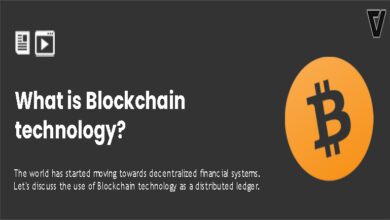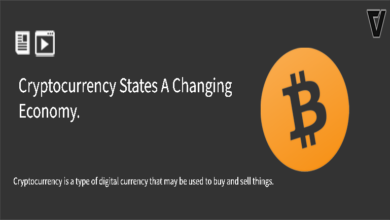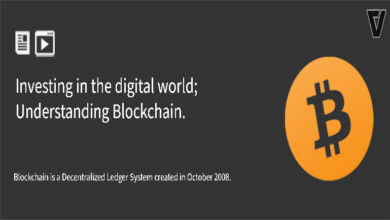The technological applications of blockchain were mainly tied with cryptocurrency. However, there have been many revelations about what this technology can offer during the last couple of years. Blockchain technology can provide vast cybersecurity applications to the modern digital spectrum as an end-to-end encrypted system. One of such latest applications is blockchain voting which is considered a highly secured voting method.
Is blockchain voting real?
The simple answer is yes. The blockchain application for voting has been tested, and it is real! In its’ simplest form, blockchain is a digital register that asserts power from peers (nodes) to record and verify the transactions. Due to its decentralized control system, it is nearly impossible to hack a blockchain system. This same quality has led this technology to be used in many digital applications which require the highest degree of security. Electronic voting that needs to be conducted in a highly secured environment requires an anti-hacking system such as blockchain technology. Therefore, blockchain voting is a concrete solution to prevent vote fraud.
Why is blockchain voting necessary?
Today, cyberspace faces many challenges and threats, especially from hackers. Governments, multi-national cooperation, international agencies, and organizations spend millions of dollars securing their digital platforms from hacking. There had been many accusations against Russia; they manipulated the 2016 US presidential elections results by hacking into the US voting system. After that, former President Donald Trump also made the same allegation against current president Joe Biden. Experts claim that all those allegations may have been avoided if the US voting system had used a blockchain voting system.
Benefits of blockchain voting
Apart from its’ unique security features, there are many other benefits of blockchain voting. They are listed below:
Reduce the staff involved
The blockchain voting method is a completely digital process. Manual handling of ballot boxes, paperwork, administration workers, security personnel can sit back and break from the election duties.
Preserve democracy
Blockchain is a method of recording and verifying open and shared data among users. The votes are often recorded, controlled, and counted by a centralized authority. Blockchain-enabled electronic voting (BEV) could enable voters to perform the same tasks independently, permitting them to have the original vote record. The past record could not be altered because other voters will see that the vote is different from their own. Therefore, nobody can fraud or cheat in this kind of voting system.
Speed delivery of results
Election results can be released quickly as manual counting would not be necessary. Since blockchain systems can handle massive amounts of data at once, processing time would be less than any electronic voting system.
Decrease organizational cost
Since there is no requirement of printing ballot papers and running ballot centres blockchain voting system can reduce the total election expenses by a huge percentage. Additionally, as I discussed above, decreasing staff members involved with the election process also reduces the associated costs.
Increasing voter turnout
The voters can use the decision tokens (HST) to vote using either a smartphone or a computer and then record into an immutable blockchain and verify the outcome of the vote. There is no chance of manipulating, recording mistakes and altering the results. In addition to the voting process, this system is helpful to make decisions in a situation in which authority and resources are divided. Since the voters are not needed to physically be at a polling station, voter turnout can be increased in remarkable numbers.
Examples of blockchain voting
Many countries in the world have introduced an electronic voting system. Few countries have already introduced blockchain voting and vote counting methods to their election system. Below are some examples of blockchain voting applications across the world.
Sierra Leone
Sierra Leone deployed a blockchain network to count votes in conjunction with the official vote counters for the Western District. The project is overseen by Agora, a different for-profit blockchain voting system. Although the process was quite controversial due to the non-transparency of applications, authorities claimed that the method yielded good results.
Japan
Tsukuba City was the initial Japanese City to offer blockchain-based digital voting. Japanese blockchain-based startup was incorporated into the voter system during Tsukuba’s Smart City initiative. Tsukuba has not yet used the system in the government election positions. However, they have utilized the system to support proposals for social development.
The rollout was not smooth sailing, with a few voters misplacing their passwords after accessing the application. The implementation was seen as an overall success, with mayor Tatsuo applauding the process and ease of using the application to vote.
Russia
Russia has been interested in an electronic voting system that relies on blockchain technology for a while now. They have developed a variety of state-funded methods which have gone through several variations. None of them has been efficient. However, they have been used during elections, with each election is scrutinized for fraud, data leakage, and ballot stuffing.
United States
It might be surprising to learn that the US has used an electronic voting system based on blockchain to cast votes in the midterm elections of 2018 (West Virginia) and in the 202o Presidential Election (Utah County). Both used the commercial electronic voting software Voatz. Voatz promises complete encryption and complete protection for any networks they create. The members of the armed forces stationed overseas were able to vote online using facial recognition. They used military identification cards (other biometric alternatives are available) to verify the registration of voters.
Bottomline
The blockchain system is an enhanced secure application of sharing information. Therefore, this could be used in voting, which demands the highest level of security from being hacked. Some countries have already tested the feasibility of blockchain voting; despite the highest level of protection associated with this application, some claim that it is still vulnerable to manipulation. However, there is no solid evidence for such claims, and more countries are looking forward to introducing blockchain voting systems into their election system.



